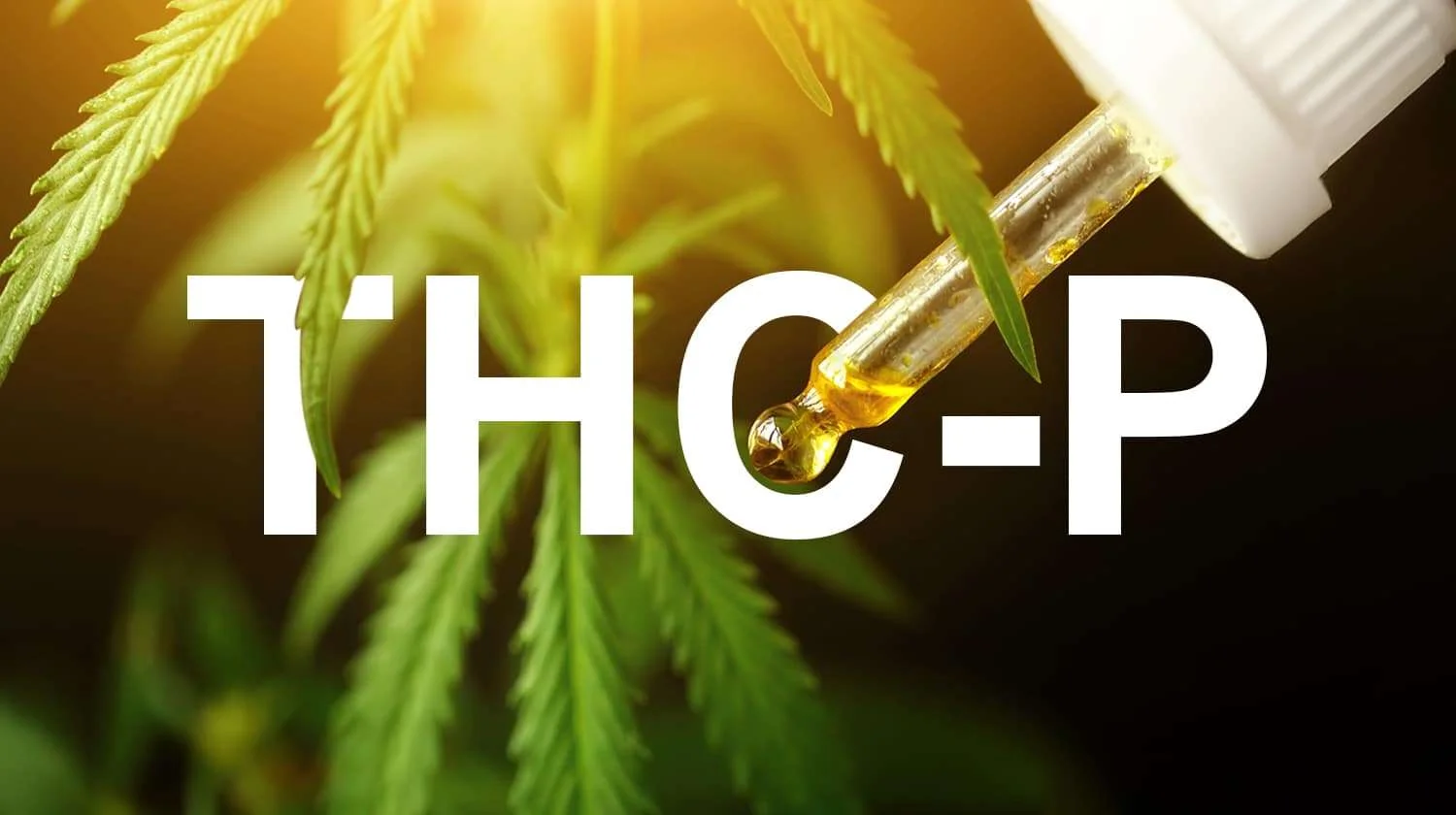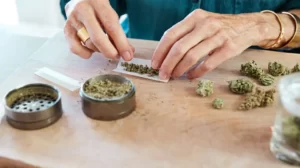
Medicinal Benefits of THC-P
THC-P can be found in various products like tinctures, capsules, edibles, and vape oils. When purchasing from a reliable retailer that provides third-party lab testing to guarantee you receive the advertised amount of THCP in each purchase, such as vape oils or edibles.
THCP is a CB1 receptor agonist and may produce psychoactive effects, including euphoria, catalepsy, changes in rectal temperature fluctuations, and analgesia.
What Is THC-P and How It Was Discovered

Discovered just recently by researchers from Italy’s Military Chemical Institute in Florence, THC-P was first confirmed as a brand new cannabinoid in 2019. It was first isolated from cannabis samples collected in Europe and the Middle East. It was brought by accident as a result of the scientists utilizing advanced and liquid chromatography technology to analyze a natural cannabis sample. The process results in obtaining THC- P by the addition of water and gentle heating.
To achieve high-quality extractions, THC-P requires a large amount of hemp. That’s why manufacturers add other cannabinoids to products containing THC-P. On its own, THC-P can be pricey.
Therapeutic Effects

Since THC-P was only discovered in 2019, research on its therapeutic effects remains limited. Nonetheless, evidence suggests it provides similar medicinal benefits as THC such as pain relief and anti-seizure properties as well as psychotropic qualities which create feelings of euphoria and relaxation.
As with other potency cannabinoids, THC-P should only be consume in small doses when taken as cannabis products; its effect differ for everyone and its effectiveness can depend on many different factors in each body. Gummies and vape oils containing THCP can now be found commercially available today with clear dosage instructions print directly onto their packaging.
Note that most THC-P sold today isn’t sourced directly from cannabis plants; rather it is synthesized synthetically in a lab by changing chemical precursors of CBD extracted from hemp using CBT technology. As a result, your purchase could contain up to 30 times stronger concentrations of THC than naturally high-THC strains.
However, we know THC-P has an extraordinarily strong affinity for binding to CB1 receptors; 33 times greater than delta 9 THC! This could translate to stronger effects and faster feelings among most users compared with delta 9 THC.
Anti-Inflammatory Properties

As with other cannabinoids, THC-P interacts with the endocannabinoid system to produce effects, including inflammation reduction, stimulation of appetite and relieved pain relief, improved sleep and anxiety relief. Furthermore, it may create feelings of euphoria, relaxation or anxiety relief; but as with psychoactive cannabinoids it may cause undesirable side effects like dry mouth dizziness or an increased heart rate.
THCP differs from THC by having an alkyl side chain of seven carbon atoms, making it considerably more potent.
Researchers must recreate it in the laboratory in order to study its potential medicinal applications, since its natural levels in marijuana strains tend to be very low. Its full name is delta-9-tetrahydrocannabinphorol but its shorthand term for study purposes is often “THCP”, THC-P or THC.
THCP can be found in hemp-derived products such as tinctures, oils and gummies. However, its effects take longer to take hold than THC and therefore require greater tolerance before beginning your dosage plan. As its high can be intense and long-lasting it’s wise to start slowly before increasing dose.
Anti-Anxiety Properties
One of the main effects of THCP is its ability to reduce anxiety. THC-P interacts with the ECS to produce this anti-anxiety effect by relieving pain and stress while increasing feelings of happiness and relaxation. Furthermore, it may even help relieve nausea and reduce vomiting incidence.
Like THC, THC-P can alter mood and induce feelings of euphoria or “high.” This effect is amplified when used with vaporization using a dedicated THCP cartridge that looks similar to delta-8 cartridges. Some users may experience increase feelings of arousal and anxiety while other experience milder effect of euphoria or drowsines; it has even been noted to produce more indica-leaning highs than THC with possible sleepiness and muscle relaxation potentials.
While THC-P may contain anti-anxiety properties, its precise efficacy remains unknown. Therefore, it’s best to start off slowly and see how it affects your mood before increasing the dosage over time.
If you’re curious to try THC-P for yourself, we suggest purchasing either a vape cartridge or gummy to give at home. As full-plant extract is currently not available, cartridges will typically contain terpenes to add flavor and enhance its effects. Look for products with accurate strain names listed; oftentimes these names just serve as marketing gimmicks rather than providing insight into its terpene profile used during distillation.
Anti-Cancer Properties
Although THC-P may not yet have proven itself an anti-cancer agent. its unique ability to bind with CB1 receptors could make it highly valuable in treating various medical conditions. Like other cannabinoids like delta 8 THC and 9 THC as well as CBD, THCP may provide pain relief. Rreduce nausea, ease sleep disorders and ease anxiety symptoms.
THC-P is a natural phytocannabinoid compound found in many strains of cannabis plants, such as hemp. Unfortunately, however, its concentration typically falls to 0.1% or below and therefore, laboratory production must take place to study its therapeutic potential.
As THC-P was only recently discovere by scientists, its effects and benefits are still being studied by scientists. Based on its molecular structure and 33 times greater affinity for CB1 receptors than delta 9 THC, THC-P may provide a more potency high and be effective against nausea as well as sleep issues.
At present, THC-P can be found as both a tincture and edible products such as oils. When purchasing this new cannabinoid, consumers should ensure they purchase from reputable sellers to ensure that they purchase quality THC-P that will provide their desired psychoactive effect without adverse side effects like toxicity or other negative impacts.
Adverse Effects and Precautions

Since this is a new cannabinoid and long-term side effects have yet to be adequately recorded. it’s hard to know with certainty what the short-term side effects might be. Still, people who have tried THCP reported. besides typical side effects such as the dry mouth and red eyes, the following adverse experiences.
- Anxiousness
- Self-consciousness
- Sleepiness
- Fatigue
- Alertness
- Nausea.
Those who consume cannabis should be aware that the effects of each new cannabinoid might differ from the effects of those they already know well. The significant strength of this cannabinoid means users should take it slow to get the applicable psychoactive effects. So be careful while trying THCP for the first time. It is preferable to start with micro-dozing, which is a universal precautionary method.
Is It Legal?
The legality of THC-P varies from state to state because of conflicting federal legislation that protects both hemp and marijuana. However, since some states have made it illegal, it still may be hard to get your hands on unless you’re in a state where it’s legal or have a prescription.
The good news is that only some of the states made THCP illegal. Here is the list of those states:
- Alaska
- Arizona
- Arkansas
- Colorado
- Delaware
- Idaho
- Iowa
- Mississippi
- Montana
- Nevada
- New York
- North Dakota
- Rhode Island
- Utah
- Vermont
- Washington.
Conclusion
So, what is THC-P? That’s a lot of information to take in, but don’t worry! We’ve broken it down into four critical points for you. First THC-P is a newly discovere compound that can be found in the cannabis plant. Second, THC-P has been shown to have similar properties as THC (the psychoactive ingredient in marijuana.) Thirdly, this new cannabinoid is believe to have anti-inflammatory properties, which could make it worthwhile when treating diseases like cancer and arthritis. Finally — and most importantly — THC-P may be more potent than THC itself!
